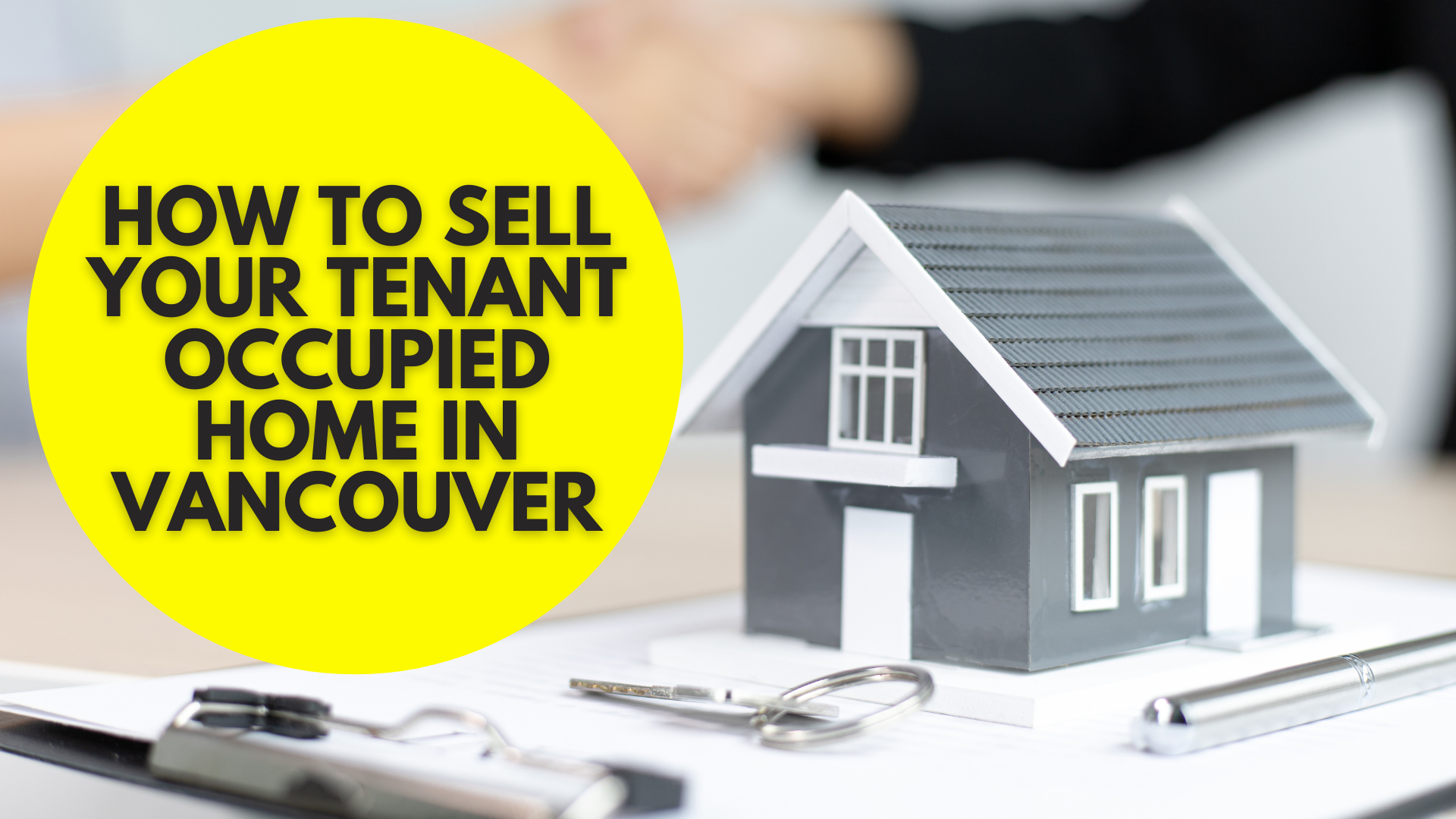
Selling a tenant-occupied property can be a stressful and challenging experience in these uncertain times. If you are a real estate professional, you have an important role to play not only in managing expectations and but also in maintaining relationships so you can ensure the safety and health of your tenant, clients and even your fellow real estate professionals.
You will also have to keep the guidance set forth by the Provincial Health Officer in mind to make sure that you are not violating any health protocols. So how do you go about selling a tenant-occupied property?
Talk To The Tenant

- While the property is still tenant-occupied, it is necessary that you settle conflicts or any concerns first before making a deal. Let tenants know about safety protocol during visits and assure them that you have followed best practices to ensure public health guidelines and recommendations are not violated.
- Give notices to tenants regarding showing so they can enable access in accordance with the Residential Tenancy Act. They should also be asked about their notification preference so they can prepare ahead of time.
- Once a showing has been scheduled, you should also inform your tenants that in the event one of the occupants is exhibiting symptoms of COVID-19, or has travelled within the last 14 days, to inform you so you can have the viewing rescheduled.
- Before a viewing, you should also set expectations when it comes to disinfecting or cleaning. When it comes to cleaning, it should not be limited to cleaning common areas. Be sure that counters, door handles, light switches and even high-touch surfaces are properly cleaned as well.
- Tenants need to leave lights on and the doors open including closets so they are accessible to potential buyers who wish to inspect the entire place. There should be proper ventilation to reduce air recirculation and to increase intake of outdoor air.
Talk to the seller

- Make sure that you have talked to the seller before you decide to list a tenant-occupied property. Ask the seller the best time to sell the property and also discuss any potential impacts it might have on the tenant. Whether these impacts have to do with potential health and safety concerns or added stress, your seller needs to know these things. Financial and personal circumstances may also be the reasons owners are forced to sell the rental property despite being occupied.
- Once the seller gives a go signal, advise them to discuss matters with their tenants before they list the property. While it is the seller's property, it can still be considered as the tenant's home and it is imperative to give advance notice before listing the rental property. Arrangements should be tailored to everyone's needs.
- When it comes to virtual options for showing and marketing, it is also best to talk to the seller about it. With virtual showing and marketing, you will reduce the risk of being in constant contact with potential buyers.
- Ensuring safety during showings must also be put in place by following health guidelines and protocols. With that said, these measures should be discussed with your seller. Be sure to document your recommendations especially in terms of ventilating and sanitizing.
- When communicating with tenants regarding showings, you will also need to discuss it with the seller to find out who will be responsible for this process.
- Take time to review the current guidance with the seller as stipulated on the Residential Tenancy Act so both sellers and tenants understand their obligations and rights.
- In some rare circumstances, owners and tenants may not reach an agreement and this is where low-cost mediation services come in. Legal advice may also be required depending on the nature of the conflict.
Follow All Public Orders

- Before viewing, everyone must agree to safety and property-specific protocols. Anyone who is involved in the showing including consumers, tenants, clients and real estate professionals must be aware of these public health orders.
- There should not be more than six people who should attend a viewing. These people should already include the occupants and real estate professionals. Physical distancing must also be maintained at all times not only inside the home but also outside.
- Viewings should also be scheduled following appropriate intervals so there is sufficient time for cleaning, ventilating and sanitizing between showings.
- Anyone who attends a showing must not show symptoms of COVID-19. Even the ones who have travelled outside the country within the last 14 days should not be allowed to view the property until they have complied with the health and safety requirement.
- Make sure you have the contact information of people attending the showing. They should also provide informed consent to the use, collection and disclosure of their information for contact tracing.
- All individuals who are present during a showing should wear masks inside the property and in common areas if you have a multi-tenanted property. Other layers of protection might also be necessary. Do not forget to use disinfectant or hand sanitizer as well when you enter or exit the property.
- Occupants must not be present during showings.
- Showings should be limited to serious buyers to pre-qualify them before requesting a viewing.
- Potential buyers need to familiarize themselves with the property information including videos, photos, 3D floor plans before they schedule a showing.
- Everyone attending a viewing must be advised to avoid touching property surfaces unless needed.
- Set expectations on how viewing will be conducted and concluded. Leave doors and interior doors open and lights on to reduce touchpoints.
- Lockboxes and keys must also be disinfected upon exiting the home.
